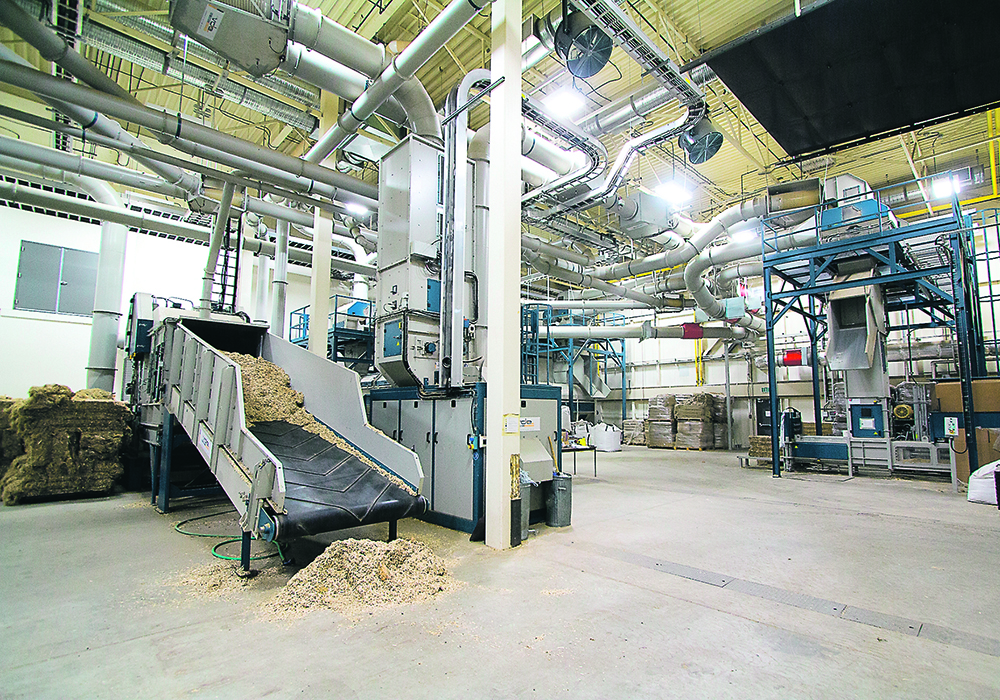This article focuses on a new incentive happening in Alberta. We plan to look at similar programs in other provinces in future articles.
The Agri-processing Investment Tax Credit (APITC) is a new incentive introduced by the Alberta government. It can provide a 12 percent non-refundable tax credit to businesses investing $10 million or more to build or expand agri-processing facilities in Alberta.
This new initiative has been created along with many other initiatives and together they make Alberta one of the largest agri-processing provinces.
Read Also

Farmer ownership cannot be seen as a guarantee for success
It’s a powerful movement when people band together to form co-ops and credit unions, but member ownership is no guarantee of success.
Southern Alberta is home to one of Canada’s premier food corridors, which means the region has one of the largest concentrations of agri-processing businesses in the country.
If you are currently operating or interested in starting an agri-processing business, you may be eligible for this tax credit.
Eligibility
To be eligible, an applicant must:
- Be incorporated, registered, or continued under Alberta’s Business Corporations Act.
- Satisfy eligibility conditions set out in the Investing in a Diversified Alberta Economy Act (Part 2.1) and the Agri-processing Investment Tax Credit Regulation.
If you meet the above criteria, you can assess whether your project is also eligible for the APITC program. To be eligible, it must meet the following criteria:
- The facility must be in Alberta.
- Have a minimum of $10 million in new capital expenditures.
- Be a new value-adding agriculture processing facility, or be a significant expansion of an existing processing facility.
- Meet the program’s definition of eligible value-added agricultural activity. This means that the facility is taking an agricultural input or waste and is transforming it into an upgraded product.
The applicant must demonstrate that the capital expenditures are for the purpose of establishing a new agri-processing facility or that their capital expenditures will increase the production of an existing facility. For existing facilities, this will require a baseline report showing before and after the expansion to ensure it increased production.
Finally, you will need to ensure that all your expenditures are in line with the incentive criteria. When planning your project, you must ensure that your capital expenditures meet the following requirements:
- Are directly related to creating the new facility or are increasing the production by expanding your current facility.
- Expenditures must be made on or after Feb. 7, 2023.
- Expenditures are not a transaction between affiliates.
- Expenditures were not already supported by federal, provincial or municipal assistance.
If you meet all the above criteria, then you may be eligible for the APITC.
Application
There are two main phases to the application process. The first is businesses must apply for conditional approval. This requires a proposed investment plan and an engineering estimate (minimum of class 4.)
If you receive conditional approval, you can move on to phase two. This requires the organization to submit progress reports every 180 days until the project is complete.
Once complete, an application for the APITC Tax Credit certificate, including an updated status report of the approved investment plan and any relevant supporting documentation, may be submitted. This submission will then be evaluated. Applicants may receive full credit, partial credit or no credit, depending on how closely the organization followed the criteria discussed above.
Benefit
If you are approved, an APITC certificate will be issued. Businesses can then use this benefit against their corporate taxes owing in Alberta. This benefit can be carried forward for a maximum of 10 years.
This is a significant benefit that can diminish the taxes paid on a new or existing business. If you plan a large expansion or new facility that meets these criteria, this benefit could be useful.
Overall, this incentive requires a rigorous application but it provides businesses with the non-refundable tax credit that can be used for up to 10 years. This can help ease the amount agri-processing businesses are paying in taxes and free up additional cash flow.
Stay tuned for information on incentive programs in other provinces.
Colin Miller is a chartered accountant and partner with KPMG’s tax practice in Lethbridge. Contact: colinmiller@kpmg.ca.















